Swiss men get cold beer and hot springs to flow
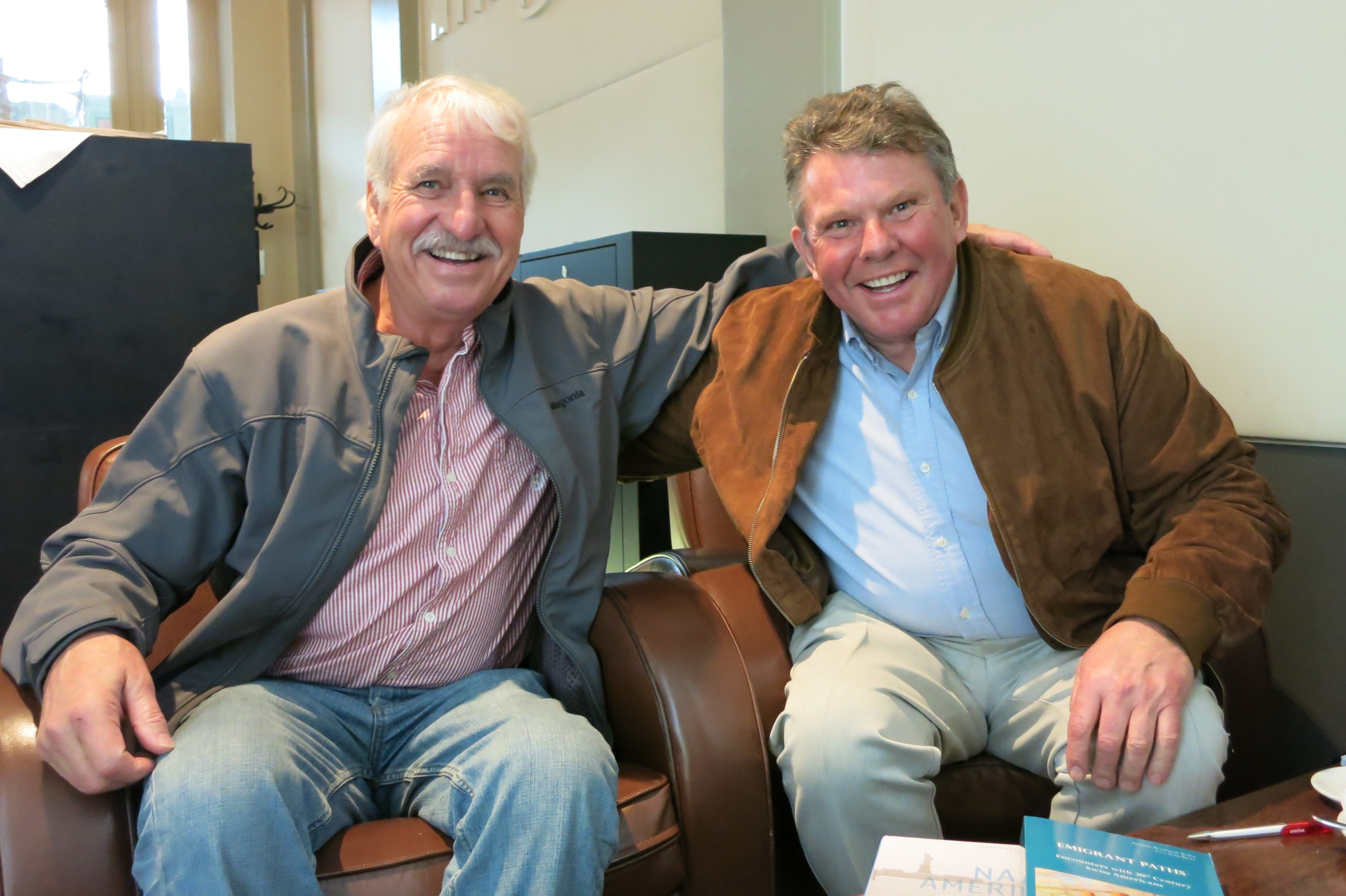
There are lots of reasons why you might apply for US citizenship, but few would admit that they needed it in order to get a liquor licence or a bank loan. That, however, is the story of two Swiss immigrants.
Hans Lenzlinger found himself applying for US citizenship so he could get a liquor licence for the hotel that he had purchased in New Glarus, Wisconsin.
“In the first two weeks of November 1976, I got married, became a US citizen, and bought my first house,” recalls Lenzlinger, who still seems a bit amazed at how fast it all happened.
His countryman Ruedi Bear decided to rejuvenate the Trimble Hot Springs in Durango, Colorado, in the late 1980s. He got it for a deal, but he still needed a lot of cash to develop the resort. The banks turned down his loan request because he wasn’t an American, so at 40, he became a US citizen.
“I know it doesn’t sound very patriotic. But I needed a lot of money to revive a hot spring,” confides Bear.
According to the Organisation of the Swiss Abroad, there are 77,520 Swiss people living in the United States (see infographic). Bear and Lenzlinger are two of several featured in a book of portraits of Swiss who started a new life in America. First published by the Swiss American Historical Society in English, a German version – Nach Amerika (To America) – came out in March 2014. The book takes on their stories chronologically.
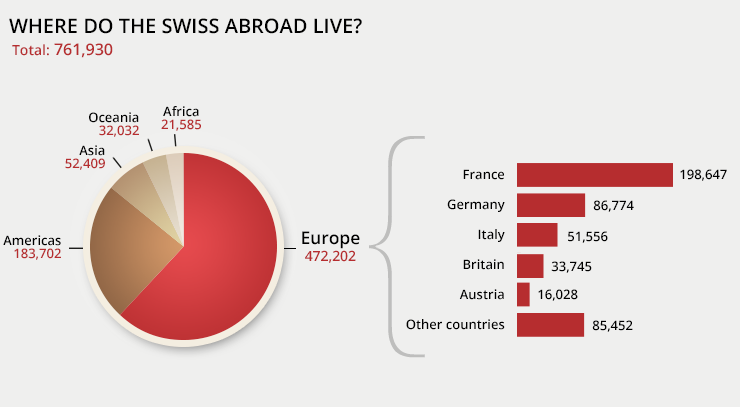
More
Swiss citizens live in all corners of the world
Cars and jazz
“I was the black sheep of the family – and sent to America to never come back,” jokes Bear, whose parents owned a sporting goods shop in Wädenswil, canton Zurich, and whose name was Bär before he met US immigration officials. A junior European ski champion, he first travelled to the US in 1963. There he found work in retail and logging, and later as a ski instructor and ski racer.
Looking back, the 70-year-old says proudly: “I immediately assimilated. I truly never felt homesick. The more years that passed, the more fully I became American.” After a series of extended stays, Bear immigrated to the US for good when he settled in Durango, Colorado, in 1975.
For Hans Lenzlinger, 65, feeling comfortable took more time. His family ran a small hotel, and he had trained as a cook. When he was 19, friends in Chicago invited him to visit and helped him find work. If he had felt homesick during stints in western Switzerland and London, the feeling was amplified in the US.
“It was hard at the beginning. I went back and forth, spending summers in America and winters in Unterwasser (canton St Gallen). I did that for about five years,” says Lenzlinger, whose mother had always encouraged him to travel so he could gain experience and languages. He remembers that people appreciated his Swiss cooking skills.
Something that Lenzlinger appreciated was the sense of freedom.
“I loved the freedom, the wide open space, and at that time, the cars!” remembers Lenzlinger, who soon bought an exclusive model of the Ford Mustang – only to realise that he couldn’t afford the extremely high insurance rates.
Music was what excited Bear. “Jazz was one of the things that fascinated me about America. The minute I walked off the pier [in New York], I went straight down to the Five Spot jazz bar in Greenwich Village and stayed there until five in the morning.” When he came to the US to stay, he brought 1,000 vinyl records. Later, he even hosted a jazz radio show in Durango, where he also ran a jazz festival for a few years.
Entrepreneurial spirits
Both men married American women in the mid-1970s. They also became their own bosses. By then, Lenzlinger had traded Chicago for New Glarus, Wisconsin – a town created by people with Swiss roots. He bought the New Glarus Hotel, spending nearly all of his time running the kitchen while his wife ran the back office.
Well-versed in the local lingo, Lenzlinger believes that he would have “fallen into a rut” had he stayed in Switzerland.
“One of my buddies once said, ‘You know Hans, you couldn’t have done here [in Switzerland] what you’ve done there [in America]’. And I have to agree,” he says, a hint of pride in his expression. The hotel is a success under his management.
In Colorado, Bear developed Bear Ranch, a vacation resort for cross-country skiing and tennis. He ran the whole resort, including its restaurant. However, it wasn’t a great success and he finally had to sell it. This freed him up for the hot springs project. It took two years and some hard times for Bear to get it going, but this didn’t discourage him.
“I think everybody doing something as a foreigner in the US will come up against some resistance,” Bear believes. Once people got to know it, Bear’s hot springs resort became very popular. He ran it from 1988-2006, when he retired at 62.
Both Ruedi Bear and Hans Lenzlinger are featured in the book Emigrant Paths: Encounters with 20th Century Swiss Americans by Susann Bosshard-Kälin and Leo Schelbert – published by the Swiss American Historical Society. The book is also available in German from Limmat Verlag: Nach Amerika, Lebensberichte von Schweizer Auswanderern.
No return
Both divorced grandfathers now, Bear and Lenzlinger seem primed to live out the rest of their lives in America rather than returning to Switzerland.
“I never really thought that I’d go back to Switzerland. I really love America and I like to be there,” says Bear, who thinks he’ll only come back for a couple more visits as he’d like to travel to other places as well.
“I know every corner in Switzerland, and there are always more people. And now they talk funny. I can’t even hear Swiss-German any more. So what’s the purpose? I’m 70 years old, so I have a small window,” Bear says, though his tone is more wise-cracker than cranky.
Lenzlinger couldn’t imagine leaving his family in the US. “I made a decision and there’s no way I could go back. No question about it,” he says, having arranged for a good friend to take over the family hotel back in Switzerland. But unlike Bear, Lenzlinger plans to keep visiting Switzerland every year, though he would like to explore other places as well.
“I’ve been fortunate to see a lot of parts of the world, but Switzerland is still my favourite,” Lenzlinger says. And somehow, the sincere way that he says it, you can understand him completely.

In compliance with the JTI standards
More: SWI swissinfo.ch certified by the Journalism Trust Initiative
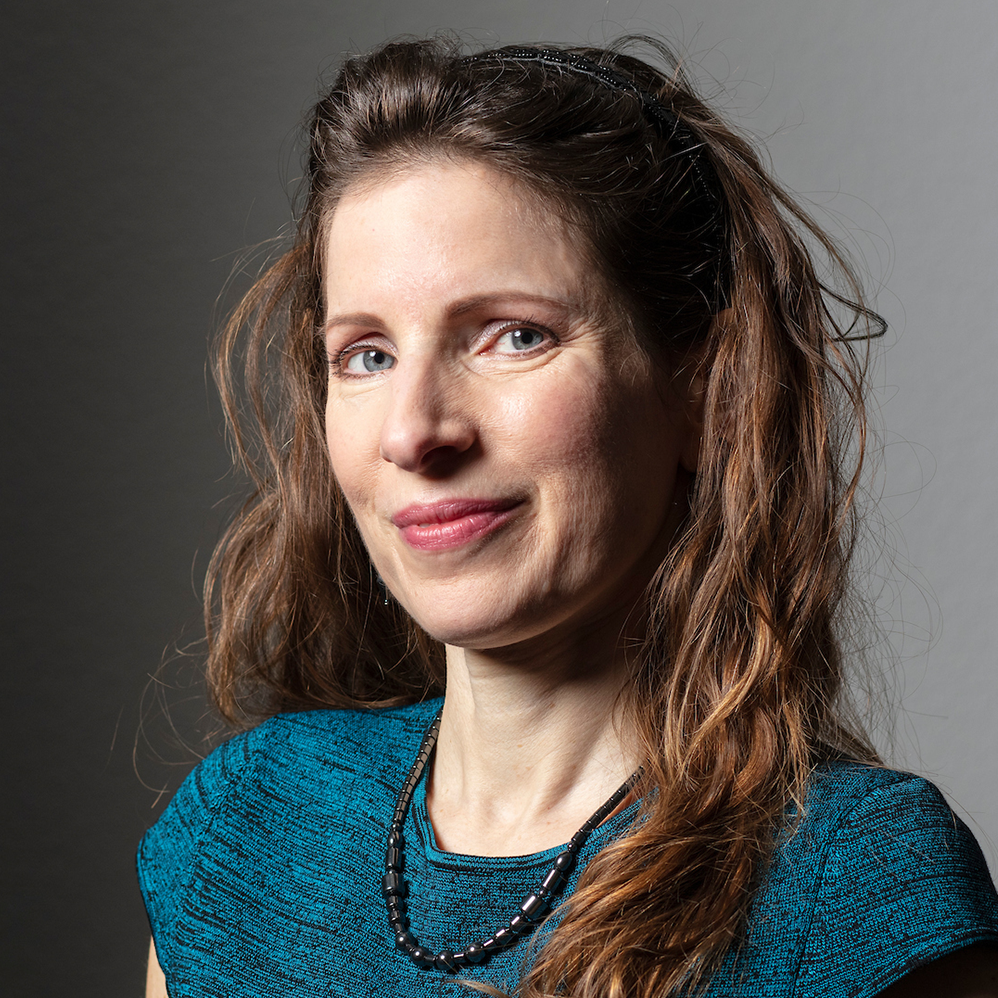
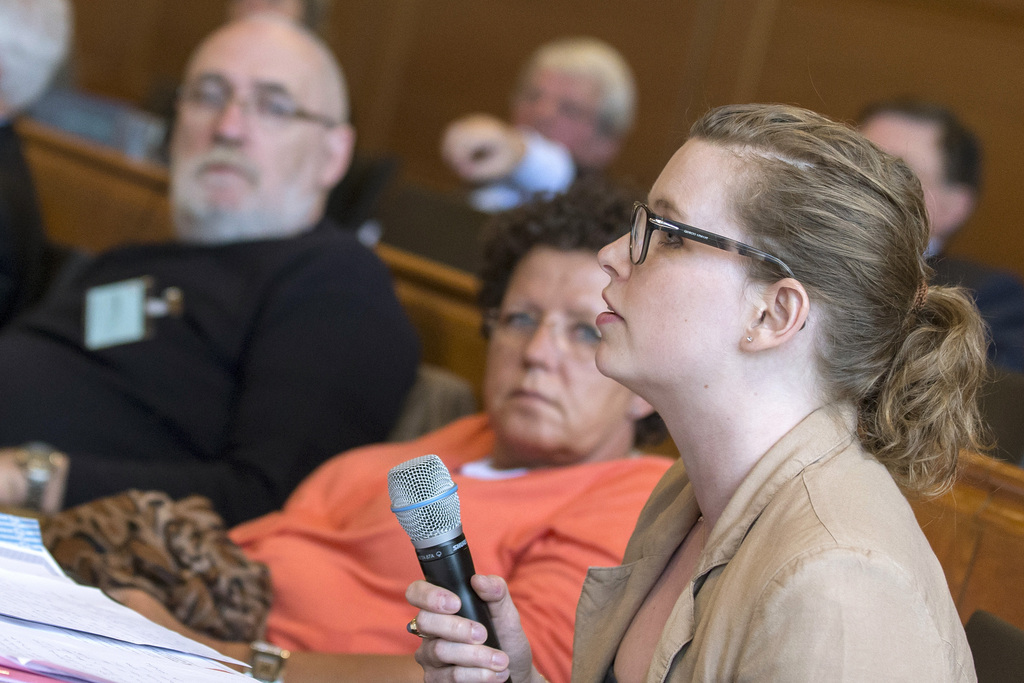
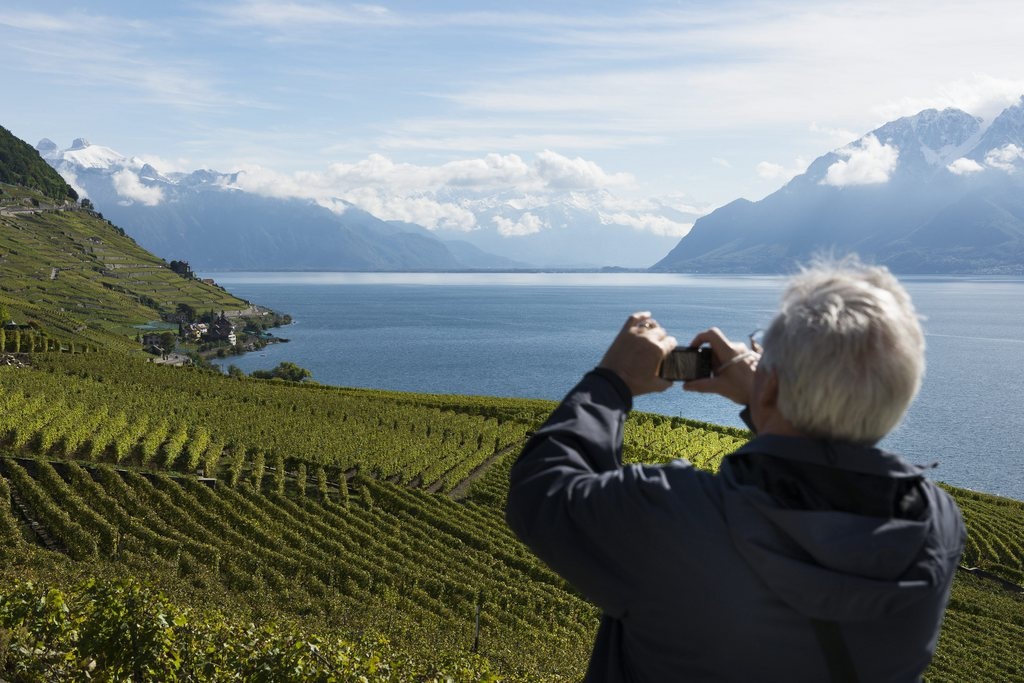
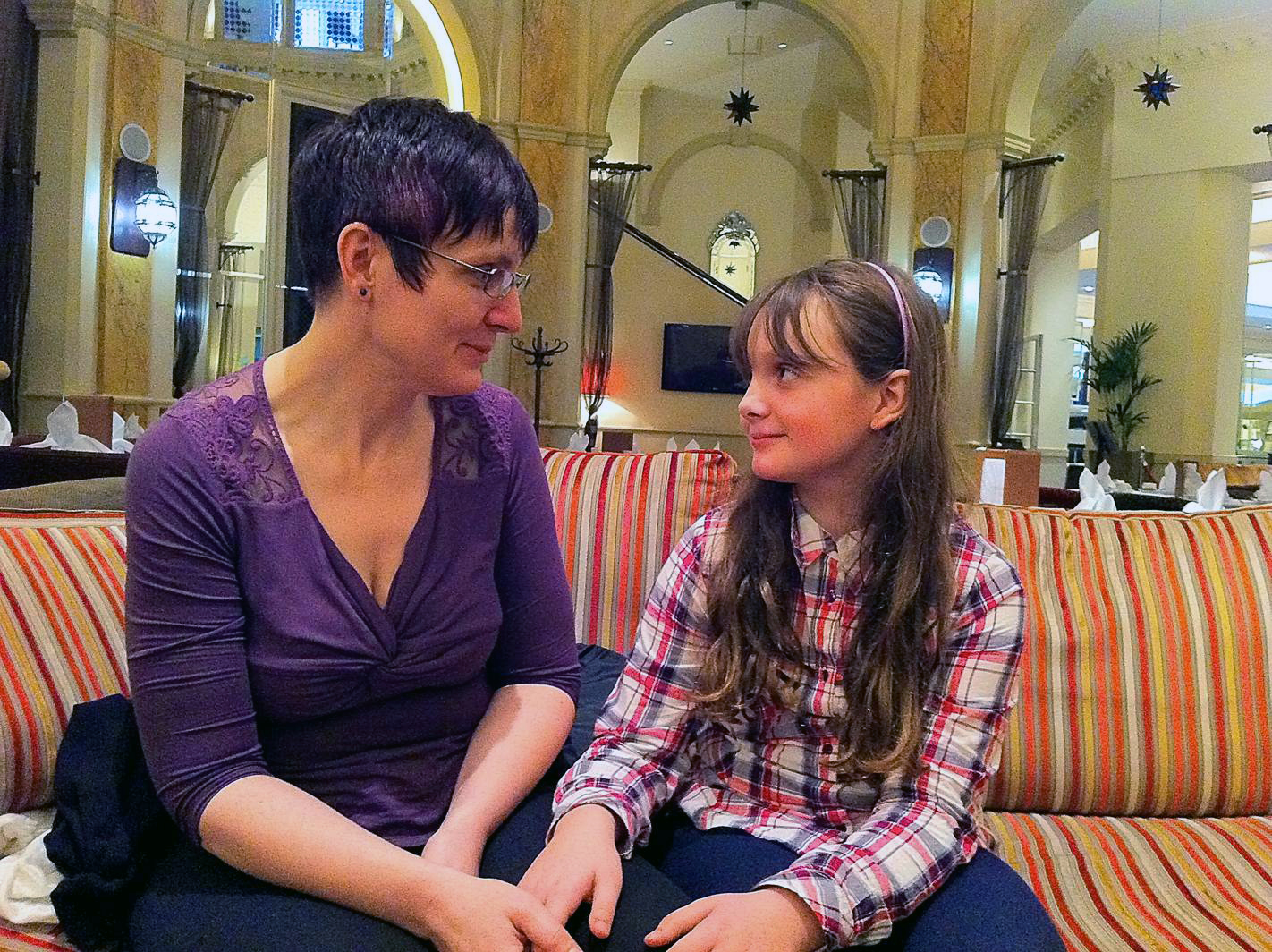
You can find an overview of ongoing debates with our journalists here . Please join us!
If you want to start a conversation about a topic raised in this article or want to report factual errors, email us at english@swissinfo.ch.